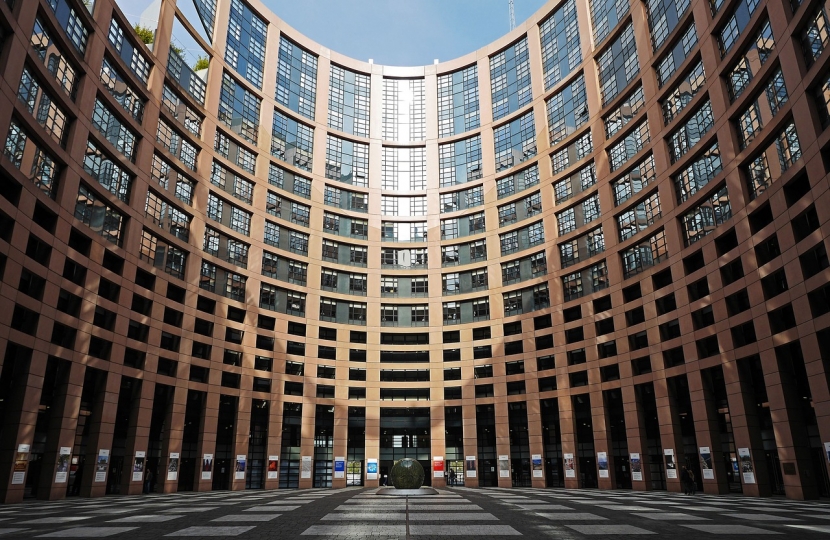
There is nothing that is very much new to add to the subject of Brexit at this stage. We shall have to wait a little longer for this. I am writing now to address a few points that have been brought up with me particularly after the Prime Minister offered Parliament options of either extending Article 50 or simply going for a No Deal if her Deal did not get through.
First, I want to comment on the decision of the Prime Minister to offer these alternatives At the last major vote in Parliament the Prime Minister was given a very clear sense that the House of Commons should pursue an Agreement with a legally binding solution to the Irish Backstop. A number of people have asked why she is pursuing this since they believe it is a waste of time and that the EU will not re-open the Withdrawal Agreement. She is doing this because it is what Parliament asked and it is part of our commitment to the result of the Referendum however we may have voted initially.
I have already stated my preference for the Deal that is on the table with a change to the Irish Backstop – the insurance policy that binds us to the EU The indications from both London and Brussels are that progress is being made on finding a solution to the Irish Backstop which will be acceptable. However we do not have control over the date on which a solution will be forthcoming. We could, of course, simply not wait for the EU to come back to us. But with progress being made as I write, I think that would waste a tremendous opportunity to achieve a deal. With the timing not wholly in our hands there needs to be flexibility on bringing the final state of play forward. The fuss that has been made by the Press and by the Opposition about not having the Meaningful Vote by this stage is neither realistic nor a sensible way of looking at the situation. The situation in Parliament is that the Withdrawal Agreement has been put forward by the Government. Its fate is not entirely in the Government's hands. We could simply give it up and leave without a deal. I have consistently voted for the Withdrawal Agreement because I feel it is a compromise agreement that shows that we are all moving forward. Other members of Parliament have not seen it in this light.
If the Prime Minister had not given the options she set out last Tuesday in the House, the result almost certainly would have been the removal of No Deal from the negotiating table and a potentially long extension to Article 50. That goes against what we set out in our manifesto, and what the Labour Party set out in its manifesto, - that the result of the Referendum would be honoured. What we have done is kept alive the possibility of exiting the EU and of maintaining that commitment to the result of the Referendum. As someone who has done commercial negotiations and is involved in arbitration, I look at the No Deal situation from a different perspective to some people. I do not want a No Deal. I think that ending our membership of the EU with agreement and cleanly is much to be valued and brings tidily to an end that membership.
I would just point out for those who commentate on the situation that despite the current uncertainty the UK economy is still performing outstandingly with record employment and inflation at its lowest level in two years. Productivity is up, real earnings are up, disposable household income is up and real household spending is also up. Average weekly earnings for employees are up. Foreign Direct Investment into the UK is up, and, the UK is likely to be the joint-third fastest growing economy in the G7 in both 2019 and 2020. Data released by the ONS shows that our deficit is continuing to fall while borrowing in the current financial year-to-date is down by £18.5 billion.
However, leaving without a deal will bring a very uncertain future for companies. This has nothing to do with whether we trade on WTO terms. I do not believe that the Prime Minister wants to leave without a deal either or that it would be consistent with what we promised in our 2017 manifesto. But that option is not entirely in our own hands. You cannot give up part of your negotiating strategy in mid-course and whether we are forced into a no deal situation depends in part on the flexibility of the EU. This is not simple brinksmanship; it is a normal part of negotiations that will be familiar to those who have done negotiations around the world. All of this suggests we must play a careful waiting game for a little while longer until the options are clearer.
Some have also seen no reason to compromise on the deal being presented by the Prime Minister. That deal is consistent with what we promised in our manifesto. It does not tie us into the EU forever. It sets out a further transition period of two years in which we can put together the sort of relationship we want with the EU. Many who look at it seem to want to read it as applying forever to the future. To say this is not toadying to a Party line. It is setting out a realistic vision of compromise that is a reliable way forward.

